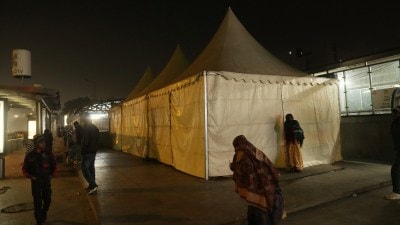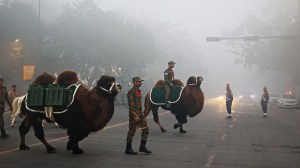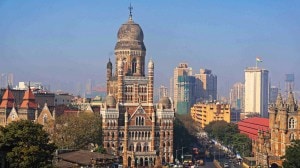The J038;K fire
The current situation in Jammu and Kashmir has caused great alarm and some papers have blamed politicians of different...

The current situation in Jammu and Kashmir has caused great alarm and some papers have blamed politicians of different shades for a crisis that, according to them, could have been pre-empted. Hyderabad-based Rahnuma-e-Deccan, in an editorial Aug 17, writes: 8220;When the government indicated its intention to take back the land from the Shrine Board, then the Muslims said once the land has been given, it should not be taken back and no disturbance should unnecessarily be created on the issue of a religious place. But this assertion was suppressed as it would not have helped to promote communalism. Creators of disorder made it a Hindu-Muslim question leading to actions and reactions in Jammu and the valley8221;.
Rashtriya Sahara says: 8220;If politics was not the objective, so much hue and cry might not have been made, at the instigation of the PDP, on the decision of the government to reverse the land allotment. Nor would have PDP stoked the fire with its efforts for political instability by withdrawing support from the government to please the voters.8221; The paper has not spared either former Governor S.K. Sinha or Ghulam Nabi Azad for the political cobweb in which the state has got enmeshed. Delhi-based Milap Aug. 22 expressed the view that tensions between the Jammu region and the valley had always been there, even during the days of Raja Hari Singh. The remedy for peaceful co-existence and efficient administration lies, according to the paper, in the trifurcation of the states into Jammu, Kashmir and Ladakh.
Harassing 8216;innocents8217;?
8216;Begunah Musalmanon ki Giraftarian ab Bardasht Naheen8217; arrests of innocent Muslims intolerable now, Abu Bashar Be-gunaah hai Abu Bashar is innocent, 8216;Mufti Abu Bashar ko Fauran Riha Kia Jaae Abu Bashar should be released immediately, 8216;Paabandi sirf SIMI Par Kyun?8217; Why ban on only SIMI. These are some of the agitated headlines in Urdu newspapers reporting statements by Shahi Imam Ahmad Bukhari who visited bomb blast accused Abu Bashar8217;s village in UP8217;s Azamgarh district with a group of Delhi Muslims, MPs Obaidullah Azmi and Abu Aasim Azmi and even Union Minister Ram Vilas Paswan, following the recent arrests of young and educated Muslims accused of involvement in bomb blasts.
8216;Hindutva ki Laboratory mein Ban Rahein hein Bam8217; bombs are being made in Hindutva lab, says a headline in Delhi-based Sahafat August 25. An editorial in Rashtriya Sahara says: 8220;The media and our extremely alert intelligence agencies who raise a hue and cry following bomb blasts in any part of the country kept absolutely mum following the Kanpur episode and most newspapers did not even report it.8221; Similar incidents at Nanded in Maharashtra 8211; 2006 and in Tenkasi in Tamil Nadu have been cited by some papers. Delhi-based Hamara Samaj Aug. 22 charges: 8220;The police department has firmly assumed that being educated and acquainted with modern technology is proof of their Muslims8217; being dangerous.8221; Jadeed Khabar Aug 23, from Delhi, apprehends a deeper motive behind these cases of 8220;harassment8221; of young Muslims: 8220;One wonders if the new wave of educational consciousness among the Muslims on a country-wide scale is being suppressed by hatching a conspiracy in the name of an anti-terror campaign8221;.
Musharraf and after
While former Pakistani President, General Pervez Musharraf, has been criticised by most in Pakistan and cold-shouldered by his erstwhile foreign supporters 8212; the US and Saudi Arabia 8212; some papers here have taken a softer view. Lucknow-based Qaumi Khabrein, in an editorial Aug. 19 has lauded him for what he did for Pakistan during very critical days, particularly after 9/11. According to the paper, after complete decimation of Afghanistan by the US, Musharraf saved Pakistan from destruction by avoiding confrontation with the US. 8220;At that time even a simple sentimental decision would have taken Pakistan back to the Stone Age, about which the American authorities had forewarned Musharraf.8221; He took many steps subsequently that saved Pakistan from disaster on more than one occasion, the paper recounts.
Rashtriya Sahara, in an editorial entitled, 8216;Pakistan: Example of Political Opportunism8217; Aug 27 says: 8220;If the Army has taken over control in Pakistan, repeatedly, the reason is that even now democracy in that country is moving on its knees and politicians have no sense of responsibility even after being kicked out time and again8221;. A day earlier the paper8217;s lead story was headlined, 8216;Pakistan Mein Phir Fauji Boot ki Aahat?8217; murmur of army boots again in Pakistan.
Shahid in sherwani
Political analysts may have written off Rajya Sabha MP Shahid Siddiqui who recently walked over from SP to BSP, but this dogged campaigner has not given up. Coinciding with the Independence Day celebrations, leading Urdu papers carried huge front-page ads with a very large photograph of Siddiqui clad in a black Sherwani Aligarh style, sponsored by his supporters, his career as a 8220;Fearless Urdu journalist and voice of truth8221; and congratulating him for his appointment as General Secretary of BSP and his candidature from Bijnore8217;s parliamentary constituency.
- 01
- 02
- 03
- 04
- 05































